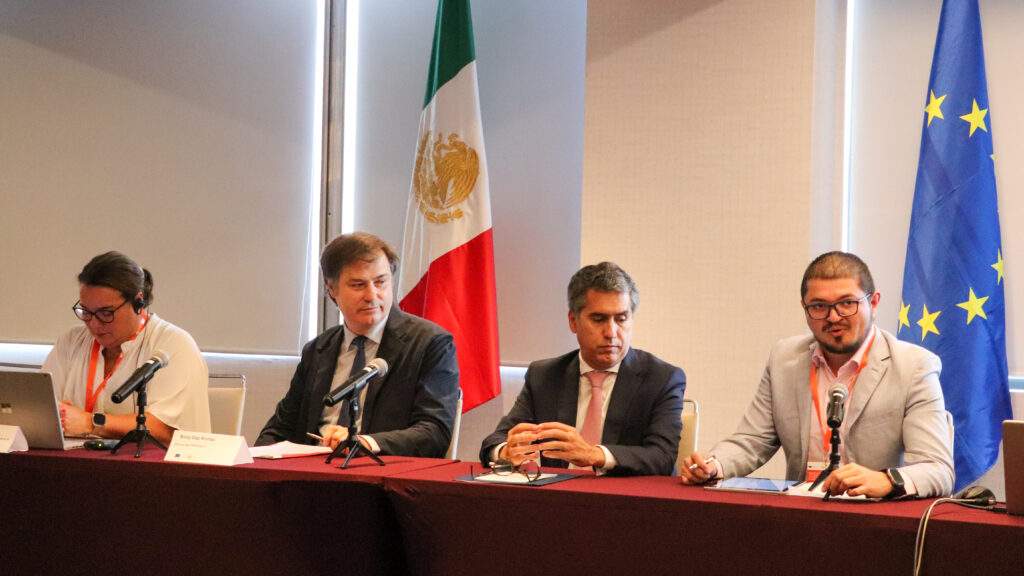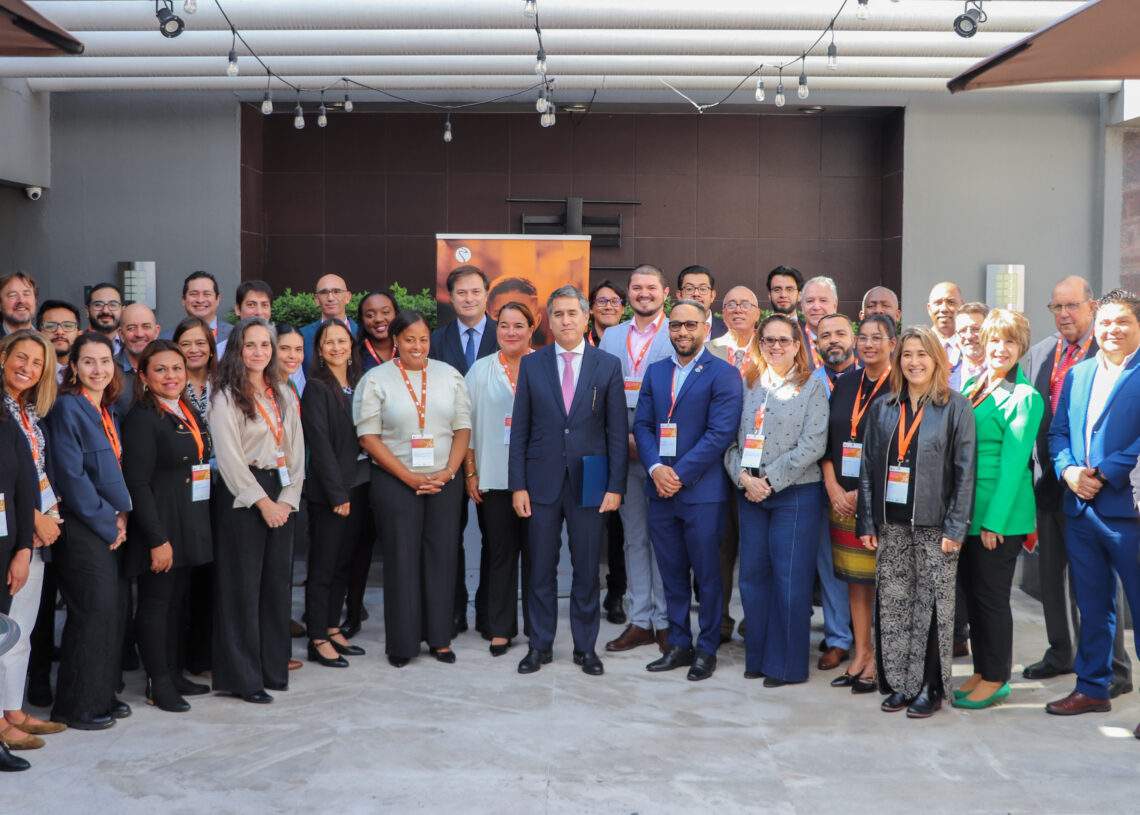Mexico City hosted, on 11 and 12 September 2025, the Meeting of National Drug Observatories (OND), an event promoted by the Federal Ministry of Health, the Undersecretariat for Health and Population Wellbeing Policies, the National Commission on Mental Health and Addictions (CONASAMA), and the European Union’s Programme on Drug Policies (COPOLAD III). The meeting brought together representatives from Latin America, the Caribbean, and the European Union.
Over two days, specialists, authorities, and international organisations exchanged experiences and reflected on the main challenges faced by the observatories in a context marked by complexity and uncertainty, where drug markets—becoming increasingly diversified and digitalised—pose serious threats to health, security, and social cohesion.
The rise of synthetic drugs, violence, and related crimes requires comprehensive, evidence-based responses, in which National Drug Observatories play a key role in anticipating trends and guiding public policy.
The event was opened by Dr Francisco José Gutiérrez Rodríguez, Head of CONASAMA; Borja Díaz Rivillas, Director of COPOLAD III; together with Francisco André, European Union Ambassador to Mexico; and the European Union Drugs Agency, all of whom highlighted the importance of strengthening information systems and regional cooperation.
In his address, Dr Gutiérrez stressed that, for the Government of Mexico, led by President Claudia Sheinbaum, it is of utmost importance to implement public policies on mental health and addictions, which are a fundamental axis of the presidential strategy on “peacebuilding and combating addictions”. “This meeting will foster alliances that allow us to join efforts in tackling addictions and to propose innovative alternatives in the different campaigns of the countries participating in this meeting,” he noted.
“This meeting is of great importance for focusing future efforts, as it will allow us to broaden the indicators that contribute to a strategic vision from the different observatories,” emphasised Dr Lucía A. Ledesma Torres, Director General of Mental Health and Addictions Policies. In this regard, she highlighted the strong impetus given by Dr Ramiro López Elizalde, Undersecretary of Health and Population Wellbeing Policies, to international collaboration between the observatories.

The European Union Ambassador to Mexico, Francisco André, stated: “One thing we have learned from cooperation within the European Union is that we do not impose models. We seek to foster mutual learning and the joint design of solutions tailored to the reality of each country. That is the essence of bi-regional cooperation, and it is something we see reflected in the COPOLAD III programme and in this Meeting.”
The first day focused on reviewing the progress made in the joint work between COPOLAD III and the observatories during the 2022–2025 period, as well as opening the debate on the current challenges faced by observatories in the region. Topics addressed included dialogue between research and public policy; interinstitutional and territorial coordination of information systems; and the incorporation of gender and human rights perspectives in studies as well as in those systems. The role of evaluation methodologies in complex scenarios—such as market regulation, environmental impact, and the phenomena of violence and incarceration linked to drug-related issues—was also discussed.
Future challenges
The second day took a forward-looking perspective. Experts shared new methodologies to respond to contexts of uncertainty, with a particular focus on the detection of adulterations and on the need to strengthen global information exchange systems. Experiences with Early Warning Systems took centre stage in the debates, as these are consolidating as a key tool to identify new psychoactive substances and emerging patterns of use. The day concluded with a workshop on “Future perspectives in COPOLAD: plans, needs, strategies”.
COPOLAD III is led by FIAP, a Spanish public cooperation foundation focused on mobilising public expertise, in consortium with the Italo-Latin American Organisation (IILA).






